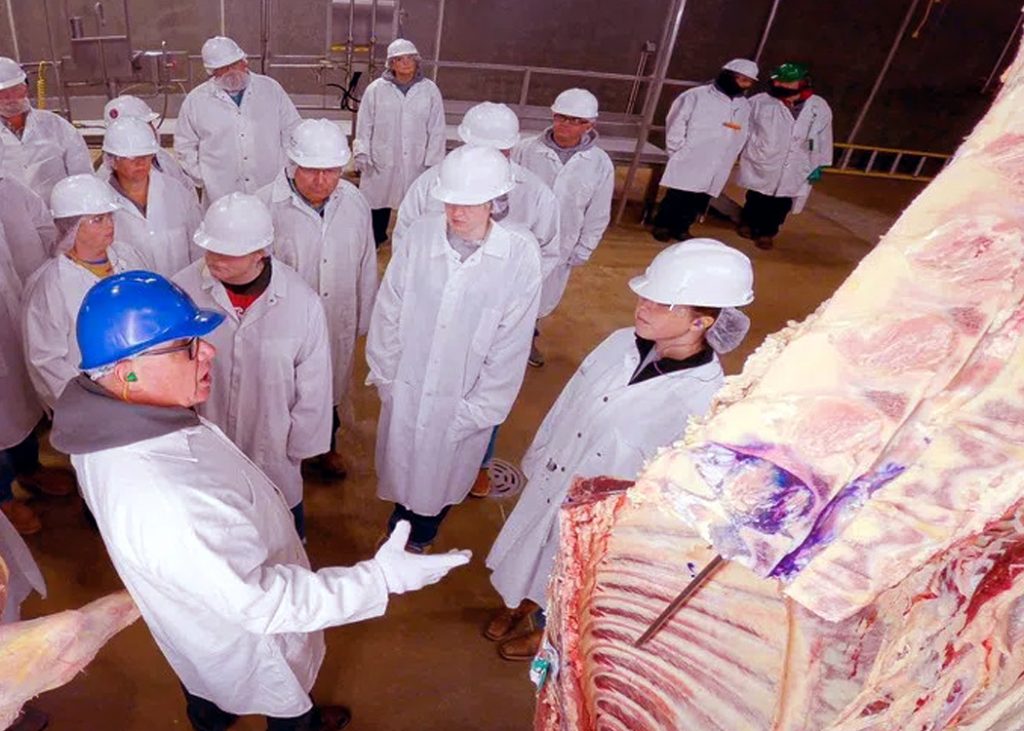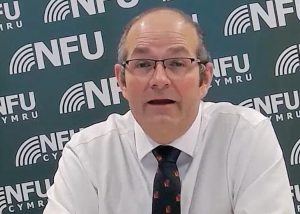
AVN WEB DESK
An innovative beef-grading pilot programme launched by the US Department of Agriculture (USDA) enables processors in rural areas to evaluate beef quality through smartphone technology remotely, eliminating barriers of cost and location for small, independent processors and ranchers.
Traditionally, USDA graders have been conducting on-site assessments at large beef packing plants, presenting logistical and financial hurdles for smaller facilities. However, with the introduction of the Remote Grading Pilot for Beef by USDA’s Agricultural Marketing Service (AMS), trained plant employees now can capture images of live animals and beef carcasses using their smartphones.
These images are then submitted to a dedicated website for remote assessment by USDA graders. The results are promptly delivered within a 24-hour timeframe, providing expedited feedback crucial for maintaining market competitiveness.
This programme signifies an advancement in democratizing access to beef grading services, enabling hundreds of federally inspected packers and processors nationwide to participate.
Secretary of Agriculture Tom Vilsack underscores the economic importance of beef grading, highlighting that USDA Prime-graded carcasses command substantially higher values compared to ungraded counterparts.
Previously, the high costs associated with grading services often deterred processors and ranchers from seeking official certification, limiting their ability to maximize product value.
According to USDA data, over 90pc of US beef undergoes grading, yet small, independent processors historically underutilized certification services due to transportation expenses and logistical challenges.
The pilot programme directly addresses these obstacles by eliminating the need for costly travel, significantly reducing expenses for independent beef packers.
Patrick Robinette, independent beef processing chairman for the US Cattlemen’s Association, emphasizes the transformative impact of the programme, revealing that the cost per head for grading services would decrease from $410 to just $4.56 under the pilot.
The collaboration between USDA and stakeholders like the US Cattlemen’s Association exemplifies a concerted effort to promote innovation and inclusivity within the beef industry. Technical guidance from industry experts has played a crucial role in shaping the pilot programme, initially proposed in a policy resolution adopted in 2020.
Eligible packers can enroll in the programme through AMS, provided they meet specific criteria such as operating under a federal grant of inspection. Furthermore, participating producers and processors may qualify for esteemed programmes like Certified Angus Beef, getting access to lucrative value-added opportunities.
For Patrick Robinette and numerous others, the remote grading pilot programme represents more than a cost-saving measure—it signifies access to previously unavailable value-added programmes.
By empowering small-scale producers and processors with the tools to compete in a dynamic marketplace, USDA is driving positive change and strengthening the foundation of America’s beef industry for generations to come.





